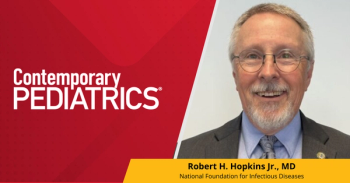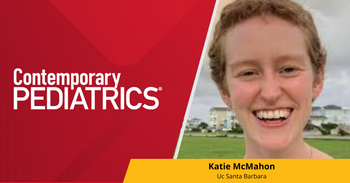
Early intervention programs can help parents head off addiction
Pediatricians can be a valuable source of guidance for parents about early education programs for children to help prevent substance use by the teenaged years and long after.
Parenting advice can be a difficult topic for pediatricians to broach, especially when it comes to substance abuse and behavioral problems. Yet early, effective education programs can do much in terms of preventing problems in these areas by the teenaged years.
Taking the first step is difficult, but Leslie R. Walker-Harding, MD, FAAP, chair of the Department of Pediatrics, Penn State Health Milton S. Hershey Medical Center, and medical director, Penn State Children’s Hospital, Hershey, Pennsylvania, outlined how and why pediatricians can help parents with primary prevention in a session titled “Addiction: Primary prevention in primary care,” on Saturday, November 3, at the American Academy of Pediatrics (AAP) 2018 National Conference and Exhibition in Orlando, Florida.
There is so much focus today on combating substance use, particularly with opioid abuse, Walker-Harding told Contemporary Pediatrics, but clinicians often forget the value of their own guidance to both parents and patients.
“Primary prevention is critically important in the fight to decrease substance use and addiction by adolescents and children,” Walker-Harding says, adding that there is no doubt that interventions and education at an early age by parents and clinicians is effective in heading off substance abuse problems. “The evidence for parent primary prevention interventions when children are early adolescents or younger is robust--more robust than many of the everyday recommendations we abide by every day--and the benefits extend through at least age 40.”
Effective intervention and education programs can prevent the initiation of substance use, depression, and delinquency, she says, but bringing up the subject of parenting guidance is not easy. There are a number of evidence-based programs now available that make this job easier for pediatricians, and a recommendation from a pediatrician carries a lot of weight with parents.
“These programs, while robust and very cost-effective, are not widely known or adopted in communities and the healthcare world,” Walker-Harding says. “Bringing them to primary care and scaling them in primary care practices has the potential to vastly increase their reach.”
Specifically, pediatricians can assess the needs of families and guide them to local programs or host their own parenting prevention program, such as
“Co-locating a parenting prevention program in their setting and recommending it to their parents would be powerful,” Walker-Harding says. “It decreases the stigma of such programs, increases parent adoption given the recommendation from a trusted source, brings the program to a trusted accessible place, and can be administered by a trained facilitator from many professions.”
Walker-Harding says these evidence-based tools are important for parents and communities, and should be embraced by practices. Hosting programs also can save clinicians time, she says, because they would know they are providing impactful education in a number of areas without having to cover those issues one-by-one in an office visit.
“Education alone does not change behavior and is easily forgotten upon leaving the clinic,” Walker-Harding adds. “Prevention science has shown how these programs can be successfully implemented in different settings with fidelity and acknowledging differences communities may have in child rearing. If we can have even 50% uptake in parents having the parenting intervention offered in a variety of settings like a primary care practice, we can change norms and outcomes for a whole community. Increasing providers’ understanding of the impact of delaying or preventing initiation of harmful health behaviors like substance use may improve their discomfort with discussion of these topics universally to all the families they see."
Walker-Harding says she hopes that sessions like hers will help increase the adoption of primary prevention programs in clinical practice, and that funding and support of these programs will continue on a larger scale.
“I hope we can continue to catch the attention of health insurance funders in that there are very cost-effective parent prevention programs that can decrease disease burden due to substance use over time just by covering 5 sessions for a parent intervention in the 10-to-14-year age range,” she says.
Newsletter
Access practical, evidence-based guidance to support better care for our youngest patients. Join our email list for the latest clinical updates.








